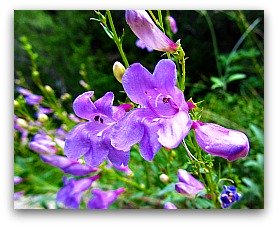|
Lavender herb
Introduction[Top]  The lavender herb is also known as lavandula angustifolia, true lavender, common lavender, English lavender and narrow-leaved lavender.
The lavender herb is also known as lavandula angustifolia, true lavender, common lavender, English lavender and narrow-leaved lavender. Lavender is part of the mint family. It can grow up to one to two meters and the leaves are evergreen. It is indigenous to the mediterranean region, specifically northern Spain.
What lavender is used for[Top] Lavender is commonly used as an ornamental plant. In ancient Egypt lavender was used to help mummify bodies. In Greece, Persia and Rome it was used in baths. In Latin lavare means to wash, this is where the herb's name comes from. The Romans also used lavender herb for wounds. Other historical uses of this herb include jaundice, dropsy, upset stomach, menstrual problems and kidney disorders. Lavender is used in traditional Chinese medicine to treat anxiety, infection, fever and infertility. Lavender is a popular essential oil used in aromatherapy.
How lavender is used[Top] Lavender is available in dried form as well as essential oil, tinctures, teas, infusions, soap and lotions. Science says[Top] Scientists in Morocco conducted a study to find out about lavender's hypnotic and sedative affects. The scientists used aqueous and methanolic extracts on Swiss mice. After all the tests were completed the scientists concluded that there was a pharmacological basis for lavender to be used as a sleep remedy. http://www.hindawi.com/journals/aps/2012/270824/
Scientists in Iran conducted a study to test the effectiveness of lavender as a treatment for depression. The scientists used lavender with imipramine on forty five people with Hamilton scale depression score of 18 over a four week period. They were split into three groups, group one received a placebo tablet and a lavender tincture. The second group received an imipramine tablet and a placebo; the third group was given the imipramine tablet and the tincture. The tests showed imipramine and lavender was the most effective combination, while the lavender tincture was found to be better than was found to be more effective than imipramine. The scientists concluded from the study that lavender tincture could be of some help in managing mild to moderate depression.
Lavender side effects[Top] Lavender is considered safe although some skin irritation can occur if undiluted lavender oil is applied to the skin. Return to natural healing home page
|
Loading


